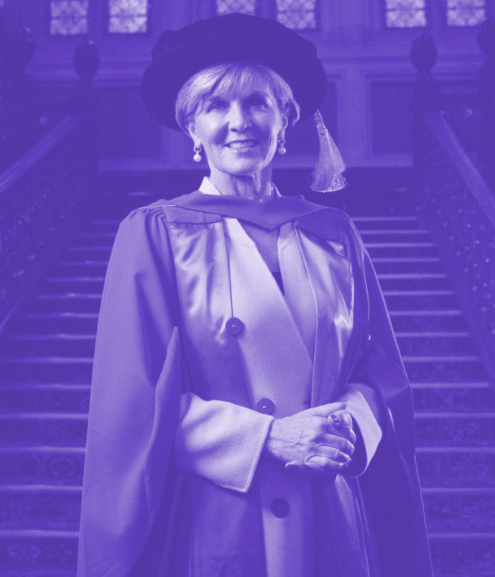Bishop takes up ANU role
 Former foreign minister Julie Bishop has made a low-key entrance to her new role as ANU's first female chancellor.
Former foreign minister Julie Bishop has made a low-key entrance to her new role as ANU's first female chancellor.
Ms Bishop’s first day as chancellor of the Australian National University (ANU) was marked by world's worst air quality, which she said was an ominous sign of what is to come.
She takes the top job at a time when dozens of university buildings are damaged by hail, and thousands of Chinese students are stuck overseas due to coronavirus travel restrictions.
With a new office just a few kilometres from her old desk at Parliament House, she said she is aware of her former colleagues trying to pick up the pieces from a destructive summer — both environmentally and politically.
Ms Bishop says the university is facing huge challenges too.
“It's been a very difficult couple of weeks for the Canberra community, but also communities across Australia. These extreme weather events have certainly had their impact and it will take quite some time for communities to recover from that,” she told the ABC.
Wild weather has put the Morrison Government's climate change policy under immense scrutiny.
Ms Bishop was still in cabinet when the Government set its 28 per cent emissions-reduction target – a figure she now says need reassessing.
“I believe that the targets should always be under review. And I think that's an approach that responsible governments have taken around the world and I'm sure the Australian Government will continue to review it,” she said.
“At any time you would want to take into account changing circumstances, changing approaches, so I'm sure they're doing that.”
Even though there are about 5,000 Chinese ANU students expected to miss the beginning of the first semester due to bans on anyone from mainland China entering the country, Ms Bishop would not comment on the economic impact to the university.
She spoke instead about contingency plans.
“Of the students who are not able to travel here, we will provide as many flexible options as we can,” Ms Bishop said.
“We will provide online course materials, we may need to delay their entry into their course, we can have intensive summer and winter catch-up courses and we can work with them so they are not penalised for the fact they can't actually be here at ANU.”







 Print
Print